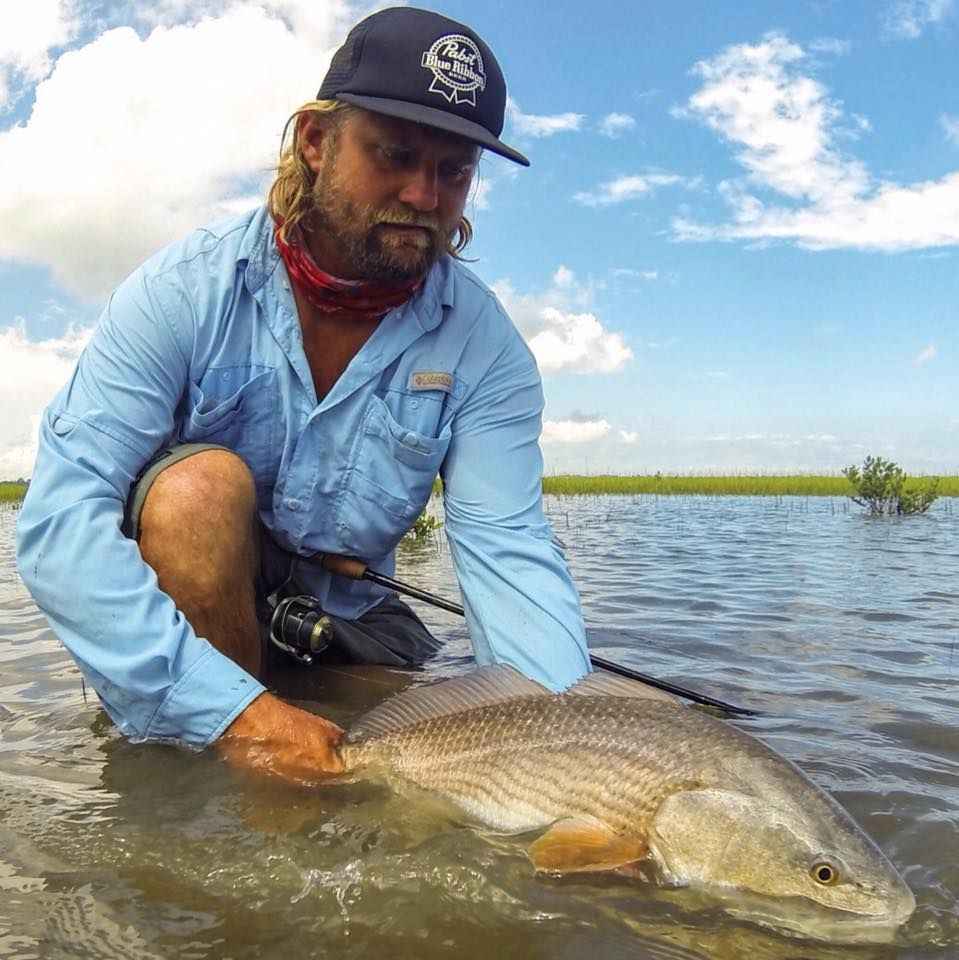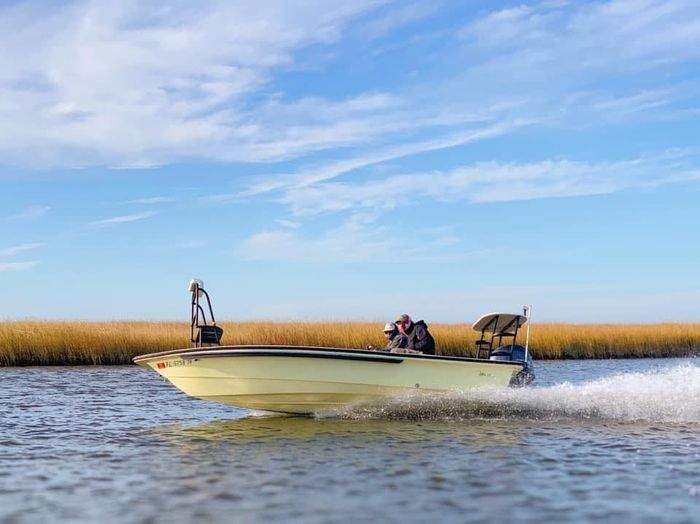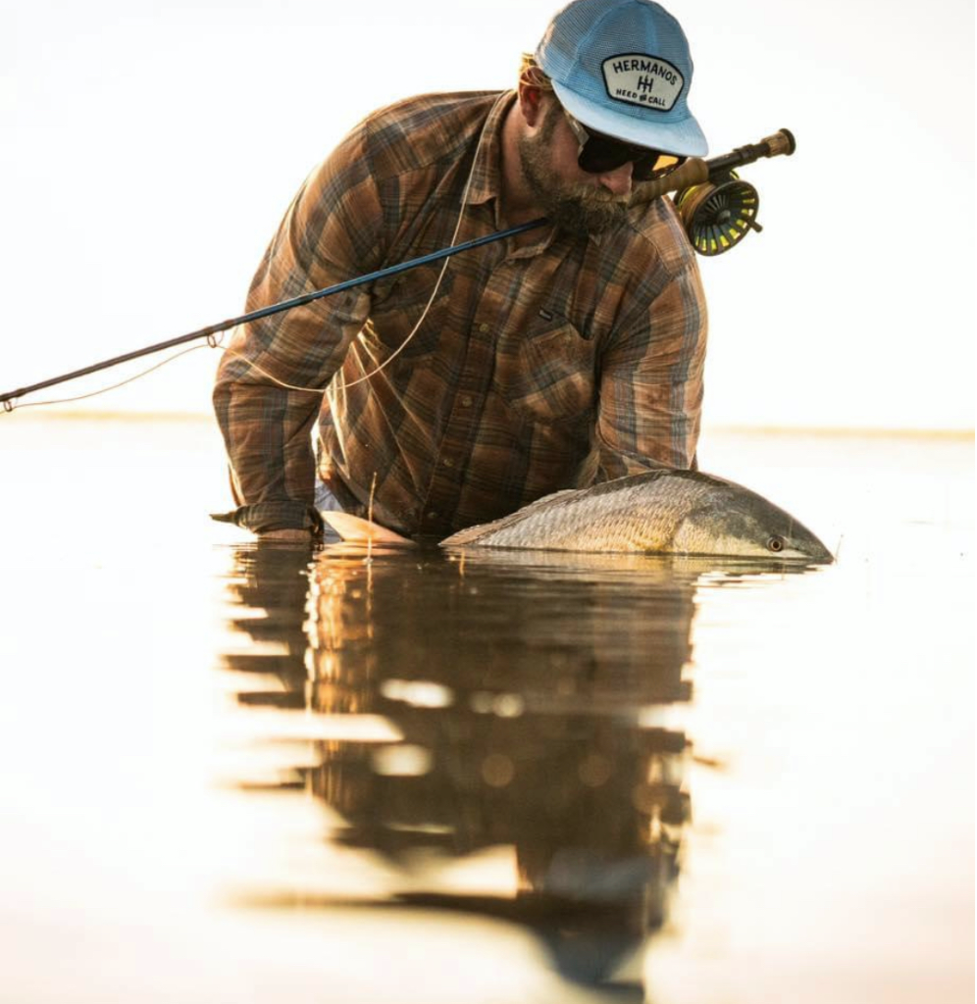Practicing and Encouraging Mindful Fishing
Learn how to incorporate mindful and sustainable fishing practices with Capt. Cullen Traverso of High Tailin Fishing.

How I Advocate for Sustainable Fishing

By Capt. Cullen Traverso
Conservation is one of my primary concerns as a master fly angler and a fishing charter guide here in St. Augustine, Florida. As an individual who makes a living in the great outdoors, I’m lucky enough to witness the beauty and generosity of nature and how it can provide for us everything we could need in everyday life — from the basics of our survival, release from stress to sports and recreation the value of connections we get through fishing, and so much more. But if we don’t rally together and let our waters experience heavy fishing pressure for our selfish gain, we may no longer enjoy nature’s generosity for long.
Whenever I guide families with kids and young people who book my services on fishing trips, I remember my own experience as a child discovering fishing for the first time. I remember landing my first snook with my father by my side, how hard I had to work to land it, and the tremendous feeling of pride I had at being able to catch a fish. This combination of awe and satisfaction is the same emotion I get whenever I go fishing, even as an adult. I have plenty of fantastic catch stories as an expert angler (many of which I share on my Facebook page), but one I will never forget is when I came to test out a 6wt fly rod that I had just put together during a low fall tide. I went to a creek solo and noticed a large wake pushing down the narrow creek bank. Placing my fly four inches in front of the path, I gave it two bump strips and watched as my target fish sped up and gobbled up the fly, only to swim under the boat and out of the creek. With no way to chase the fish as it zigzagged its way out, I found myself from backing to being spooled, so all I was left to do was hold the rod high above the marsh. I let the fish pull me down the creek as I slowly gained line back on the fish. Then, when I finally landed it, I was amazed to see its 31” length and wide girth. I gave myself a few seconds to let the amazement sink in before properly releasing the astounding fish I’d landed back into the water.


This feeling of awe and amazement — both at your capacity as an angler and at the fish you’re able to land — is something you never forget. It’s the same feeling I want to pass on to future generations. But how can I pass it on if there’s no more fish left in the waters? So whenever I experience a great catch, I think to myself — it falls on us, older anglers, to keep our seas viable for future generations to come so that they, too, can have the same experiences we’re all lucky to have out in our great waters in the present moment.
I believe that even recreational anglers and hobbyists need to be mindful of nature conservation, so even before I take guests out on my boat, I let them know that my charter is eco-conscious. I strongly advocate for mindful catch-and-release on and off my boat. And if my clients want to harvest fish for table fare, I explain to them the most responsible way to go about it, and we go from there. I also extend my sustainable practices to other aspects of the trip, such as using reusable items for any food and beverages consumed on my boat to help us eliminate the need for single-use plastics. I believe that even the smallest acts of mindfulness can go a long way in nature conservation, and one of my hopes as a master guide is to pass this on to all my guests.
Aside from advocating for mindfulness in my own personal and professional angling practices, I also show my support for organizations that work hard to keep our water resources and fisheries intact. Right now, there are two groups I support, Captains for Clean Water and Bonefish & Tarpon Trust.
Captains for Clean Water is a grassroots nonprofit organization started in Florida in 2016 by fishing guides like myself who took matters into their own hands when they decided they’d had enough of the state’s poor water management practices. The organization focuses on providing more awareness of science-based solutions for water quality management. By educating and uniting stakeholders from various industries and groups, the organization can rally together and hold elected people in power accountable for taking action to protect and preserve our water resources.
Bonefish & Tarpon Trust, on the other hand, is an organization with a direct focus on protecting and restoring the habitats and fisheries of bonefish, tarpon, and permit. The group does this through science-based approaches in collaboration with the government and other similarly-aligned universities and institutions. They’re currently working on addressing the declining fish populations in the Florida Keys and South Florida, improving regulations for tarpon fishery in the Gulf, Southeast United States, and the Caribbean, and restoring bonefish, tarpon, and permit habitats.
I advise every angler I meet, regardless of their level, to be mindful of the environment. One way you can easily practice this is by learning new tactics and researching new areas to fish. I can even dare say that learning these can make you an even better angler, as it pushes you out of your comfort zone. The failures you experience trying out new sustainable tactics will benefit you in the long run, I guarantee you, so be willing to try new tactics and new fishing spots that you and other anglers often ignore.

And while you’re at it, look for organizations to support, like Captains for Clean Water and Bonefish & Tarpon Trust. You can either donate to fund their research or volunteer your time and effort. This, along with your mindful practice on the water, will add up, making you a better angler and steward of the environment for the long haul.


